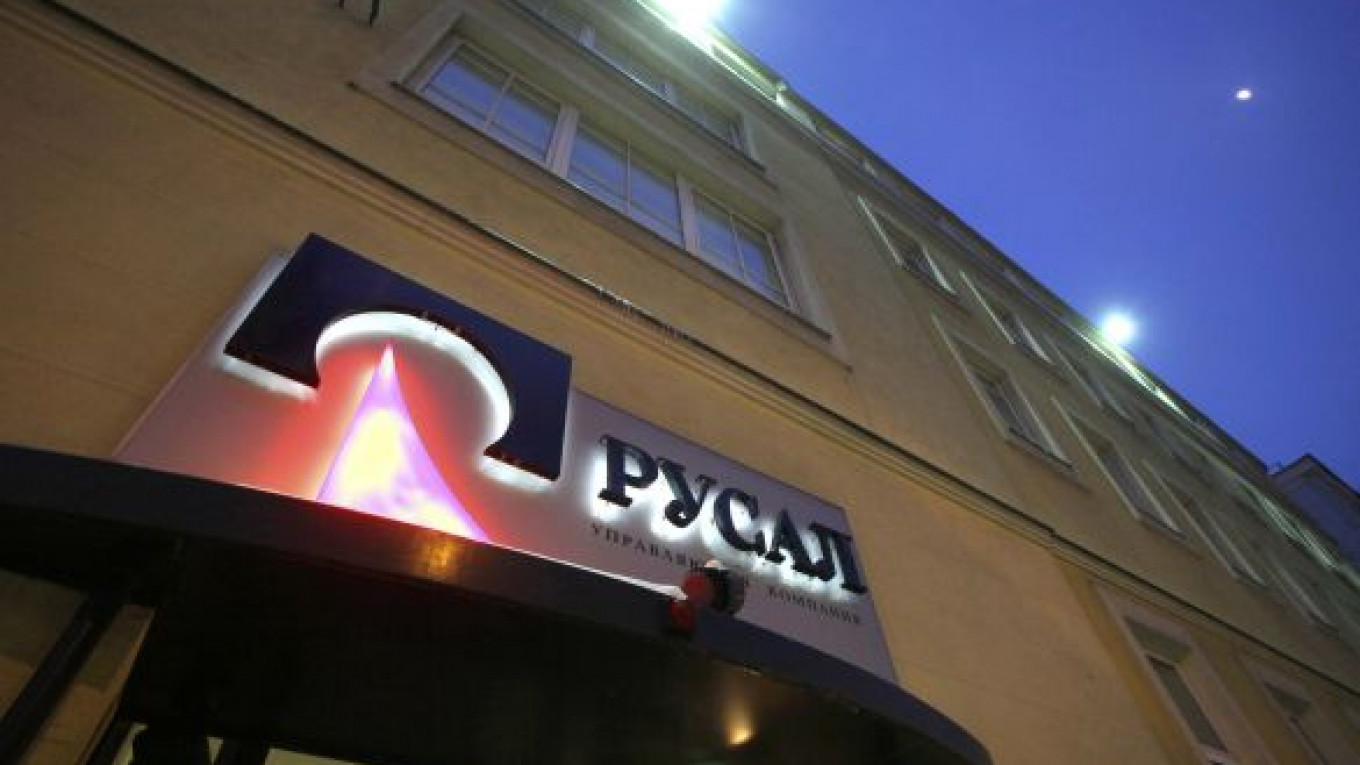HONG KONG — Rising electricity and the increased cost of its restructured debt dented third-quarter core profit at United Company RusAl, the world's top aluminum maker, whose shares fell despite a bullish outlook.
Earnings before interest, taxes, depreciation and amortization stood at $564 million, in line with the minimum forecast. A poll showed a consensus of $594 million.
The cost increase came from raw materials and electricity, the largest single cost, as Russia's electricity market liberalization progressed and RusAl bought more at free prices.
"Overall production costs increased by 4 percent per ton, and the obvious driver is the change in the terms of the purchase of electricity," VTB Capital metals and mining analyst Vadim Astapovich said. "But it is not the only driver."
The state will lift regulation of wholesale prices by Jan. 1, but RusAl's head of capital markets Oleg Mukhamedshin denied that the impact of liberalization would be significant.
"Eighty percent of [electricity] capacity use is in Siberia, and 20 percent is in European Russia. In Siberia the price level is fairly stable. Eighty percent is under long-term contracts," Mukhamedshin said, adding that the move affects only 4 percent of capacity use.
"It's 20 percent of 20 percent," Mukhamedshin said.
RusAl, which produces about 4 percent of the world's aluminum, buys most of its power on long-term contracts with another unit of its parent company, En+ Group. RusAl booked a $388 million hit on the value of these power purchase options.
The company, which sold shares at HK$10.80 in a January public offer, recorded a net profit of $29 million for the quarter. With the paper loss stripped out, it made $419 million, compared with a consensus forecast of $318 million.
RusAl shares have recovered about 40 percent from HK$6.72 in late June amid worries about the company's heavy debt position. They fell 6 percent Friday to HK$9.84 as investors booked profits after a post-IPO high of HK$10.10 earlier this year.
RusAl's finance expenses in the third quarter swelled to $699 million from $276 million a year earlier, reflecting the higher interest rate it pays on the restructured debt.
The company said it made debt repayments of $309 million in the third quarter, was ahead of its 2010 debt reduction targets by 73 percent and had met 81 percent of its 2011 debt reduction targets.
"What is encouraging … is they continue to de-gear so they are well ahead of their repayment schedule. This means their interest margin is coming down, so that will have a positive impact on earnings," CLSA analyst Andrew O'Driscoll said.
Analysts said the momentum for RusAl was strong toward the end of the year, with the aluminum spot price now 15 percent higher than the third-quarter average.
RusAl performed a bit better than Aluminum Corp of China, which reported a third-quarter loss last month on a supply glut.
"Several factors point to encouraging prospects for the aluminum market: the revival of the domestic market, increased economic activity in Germany, South America and Asia, and spot premiums reaching at a record high, partly due to China becoming a net importer of aluminum," RusAl said in a statement.
A Message from The Moscow Times:
Dear readers,
We are facing unprecedented challenges. Russia's Prosecutor General's Office has designated The Moscow Times as an "undesirable" organization, criminalizing our work and putting our staff at risk of prosecution. This follows our earlier unjust labeling as a "foreign agent."
These actions are direct attempts to silence independent journalism in Russia. The authorities claim our work "discredits the decisions of the Russian leadership." We see things differently: we strive to provide accurate, unbiased reporting on Russia.
We, the journalists of The Moscow Times, refuse to be silenced. But to continue our work, we need your help.
Your support, no matter how small, makes a world of difference. If you can, please support us monthly starting from just $2. It's quick to set up, and every contribution makes a significant impact.
By supporting The Moscow Times, you're defending open, independent journalism in the face of repression. Thank you for standing with us.
Remind me later.






